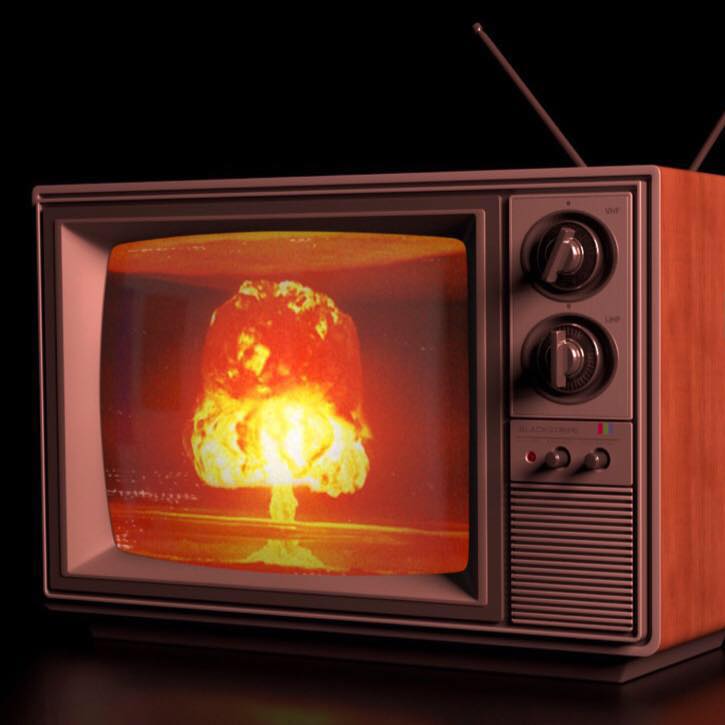By Glenn Dunks
 I didn't expect to be throwing in an extra review from DOC NYC but I wanted to bring to your attention a film that is relevant to the interests of many Film Experience readers. The film is Television Event, a wonderful documentary about the making of The Day After (1983).
I didn't expect to be throwing in an extra review from DOC NYC but I wanted to bring to your attention a film that is relevant to the interests of many Film Experience readers. The film is Television Event, a wonderful documentary about the making of The Day After (1983).
In a 24-hour news cycle full of of doom and terror, even young audiences are not blind to the world’s ills due to social media and a rapidly politically engaged society. That wasn’t the case in 1983 when Nicholas Meyer’s The Day After aired on ABC to an audience of an estimated 100-million people. The made-for-television movie brought the Cold War into American living rooms in a way that had never quite been done before.
There had not been any prime-time newscast announcing the bombs on Hiroshima and Nagasaki, of course. But for many viewers of The Day After, even though it was fictional, the power of its message and its images made them feel as if they had just borne witness to something of that magnitude...
Despite the prevalence of ‘peak TV’ and the communal effect that can come from watching something live through the prism of social media, nothing these days feels as if it could quite replicate the effect that The Day After had on a society. The film was widely considered to have played a significant part in the disarmament talks that followed its must-see airing.
Television Event is a wonderful new documentary that goes behind the scenes of its fraught production alongside the circus of its all-consuming ubiquity in the lead up to its network premiere on November 20, 1983. Directed by Jeff Daniels (no, the other one; the Australian director of The Ten Conditions of Love), it assembles significant personnel with b-roll, on-set and news report footage, editors Eileen Meyer and Aaron Wickenden deftly weaving its multiple narratives through that of the Reagan-era politics. ABC producer Robert Papazian, director Meyer—probably best known then and now as the director of Star Trek II: Wrath of Khan—and screenwriter Edward Hume are all there, as is Ellen Moore the child performer from Lawrence, Ohio, whose appearance as Joleen left her rattled to this day. Steve Guttenberg, however, isn’t here. They all have particularly personal observations to add, with the production of The Day After having had a profound effect on all of them.

Funnily enough, the film it reminded me the most of was Jeffrey McHale’s sublime You Don’t Nomi about the critical reactions and reevaluations of Showgirls (1995). That documentary was probably seen by many as just a glossy ode to a camp artefact, but I found it to be much more; an affecting paean to cinema that found pathos in its pop cultural rummaging. Beneath its anecdotes about breasts and hamburgers was a documentary that had real affection for its subject and the special place it holds for many. So while Showgirls and The Day After could not really be any further apart, Television Event finds something almost as emotional within its just as against-the-odds story of filmmaking magic. It is an expressive tribute to the dream that movies can change the world, the remarkable speck of magic that is created when it kind of does.
Meyer and Hume in particular had hoped that The Day After would be something of a megaphone towards those in power—albeit an apolitical one, taking no side and refusing to assign blame to any one country in its narrative. It apparently left Ronald Reagan ‘greatly depressed’, as it should. And against the more conservative talking points seen here that suggested it was exaggerated and liberal propaganda. 37 years later, its place in the zeitgeist is greatly minimised, as are all things of this sort, but Television Event gives appropriate reverence to its place in history and offers today’s audiences a reminder of what mass-culture is capable of.
Television Event is screening at the virtual DOC NYC festival until November the 19th.